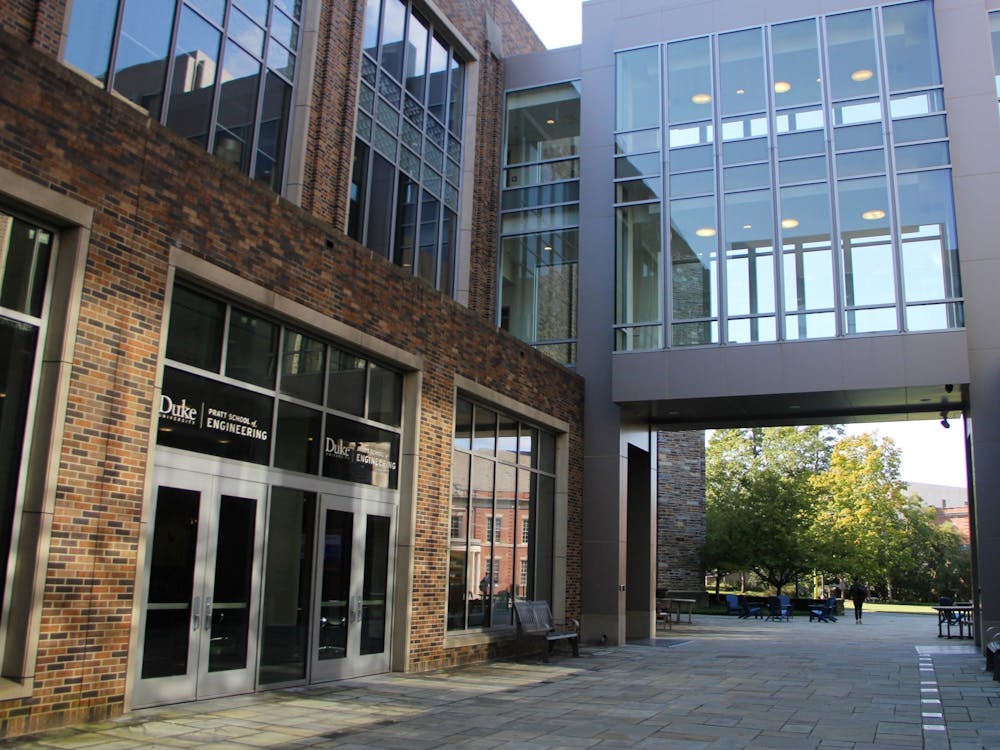A new degree program at the Pratt School of Engineering hopes to equip students with new tools to combat climate change.
Called the Master of Engineering in Climate and Sustainability Engineering, the program is one of several post-graduate engineering tracks offered by Duke and is designed to be completed in three semesters, according to Henri Gavin, the W. H. Gardner, Jr. chair of the department of civil and environmental engineering. The program is set to formally begin in fall 2024, though classes will be piloted this coming academic year.
Sara Oliver, Pratt ‘06, will be returning to Duke after 17 years to direct the master’s program. Oliver previously worked in the private sector at consulting firms after graduating with her civil engineering degree.
“I've stayed connected through the years and I just am thrilled to be back,” she said. “The program is designed for students that have an interest in engineering solutions that will have a positive impact on the lives of people with relation to climate in the world.”
Pratt professors began developing the master’s program last year after establishing meetings with relevant stakeholders in the industry.
“We found need for a program with a very strong climate orientation,” Gavin said. “A program that trains engineers to think very broadly, to think about much more than the client of a project, by considering all the people whom that project may affect and to develop deep engineering and technology skills, in the context of stakeholder engagement.”
Oliver expressed the importance of this new curriculum's strong foundation in climate-focused engineering. She believes it will prepare students for challenges which are “more nuanced” than those typically associated with engineering.
“You're designing something in a community, you have to understand risk, you have to understand uncertainty, you have to determine the best solution by balancing different factors and iterating back and forth in partnership with, and most importantly listening to, the community, the end user,” she said.
Oliver and Gavin agree that there is not one perfect mold of students who would benefit from the program.
While Gavin noted that the program is looking for students entering with a “strong technical base,” Oliver also added that there is a wide range of candidates for the degree. Oliver pointed out that candidates could include students fresh out of their undergraduate studies, those already working in the engineering sector, and applicants looking for a career pivot.
The University has been working towards the goals of the Duke Climate Commitment since September, aiming to innovate solutions to the climate crisis that the world is currently facing.
Oliver noted that the program's goal is “to support and push towards” the Commitment. Gavin echoed this sentiment, noting that the program goes "hand in hand" with the Commitment by "training the generation of engineers who will contribute to solving the broad range of problems in the climate and sustainability area."
“This Climate Commitment can be inspiring because it engages the entire community — faculty, current students, past students, alumni that are working in these areas right now — all of whom, through this program, for example, will work together to make a positive impact,” Oliver said. “It is all connected fundamentally.”
Get The Chronicle straight to your inbox
Signup for our weekly newsletter. Cancel at any time.

Michelle Brown is a Trinity junior and an editor-at-large of The Chronicle's 120th volume.

